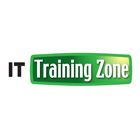Service Delivery Processes and Relationship Processes

About the Lecture
The lecture Service Delivery Processes and Relationship Processes by IT Training Zone is from the course ITIL® Service Management according to ISO/IEC 20000. It contains the following chapters:
- Budgeting and accounting
- Capacity management
- Exercise – delivery processes
- BRM
- Exercise – relationship processes
Included Quiz Questions
Which of the following is NOT a requirement in the standard for budgeting and accounting?
- Identifying cost saving opportunities to ensure the service is delivered in the most cost-effective manner
- Budgeting and accounting for service components
- Apportioning indirect costs and allocating direct costs to services, to provide an overall cost for each service
- Effective financial control and approval
Which of the following are details required by the standard for budgeting and accounting?
- Assets — including licences — used to provide the services
- Shared resources
- Overheads, capital and operating expenses
- Externally supplied services
- None of them
Which of the following is NOT a budgeting and accounting requirement of the standard requirement for the service provider?
- Calculate fair charge for the use of the service, based on its actual cost
- To monitor and report costs against the budget
- Review the financial forecasts
- Manage costs
According to the standard, the capacity plan must take into account which of the following?
- Human resources
- Management resources
- Technical resources
- Information resources
- Monitoring capability
Which of the following is not one of the actions required by the standard for the service provider as regards capacity management?
- To use demand management techniques to smooth out peak capacity requirements
- To monitor capacity usage
- To analyse capacity data
- To tune performance
According to the standard, which of the following is NOT considered when drawing up the information security policy?
- Capacity requirements
- Service requirements
- Statutory and regulatory requirements
- Contractual obligations
The standard lays down a series of management responsibilities as regards information security. One of these is to communicate the policy and the importance of conforming to the policy to appropriate personnel. Which of the following would NOT be considered appropriate personnel for this message?
- Competitors
- Service provider staff
- Customers
- Suppliers
Which of the following is NOT a requirement for Business Relationship Management under the standard?
- To ensure that the Service Catalogue is accurate and available
- To review service provision regularly
- To use change management to manage any changes to requirements identified
- To work with service level management to co-ordinate any SLA changes which result from changes to the service requirements
Which of the following are requirements of the standard for Business Relationship Management when complaints are received?
- Recording the complaint
- Investigating the complaint
- Acting upon or escalating the complaint
- Reporting and closing all service complaints
- None of them
Which of the following is NOT a requirement of the standard for Business Relationship Management for measuring customer satisfaction?
- To identify the most important customers and to monitor their satisfaction level over time
- To plan when surveys are to be held
- To ensure that the sample of customers surveyed are representative of the customers as a whole
- To identify improvements based on the analysis of the responses to the surveys
Which of the following is NOT included in supplier management requirements in the standard?
- Directly managing the performance of all suppliers whether they are lead or sub-contracted suppliers
- Ensuring that the roles of, and relationships between, lead and sub-contracted suppliers are documented
- Verifying that lead suppliers are managing their sub-contracted suppliers to fulfil contractual obligations
- Identifying the causes of nonconformities and opportunities for improvement
According to the standard each supplier should be managed by a designated individual on the service provider side. Which aspect is NOT listed as managed by this individual?
- The selection of new suppliers
- The contract
- The relationship
- The performance of the supplier
According to the standard, which of the following is NOT a requirement of the supplier management process?
- Managing the performance of internal support teams
- Ensuring that the contract reflects current requirements
- Ensuring any changes to the contract are controlled by the change management process
- Agreeing a documented procedure to manage contractual disputes between the service provider and the supplier
Customer reviews
5,0 of 5 stars
| 5 Stars |
|
5 |
| 4 Stars |
|
0 |
| 3 Stars |
|
0 |
| 2 Stars |
|
0 |
| 1 Star |
|
0 |


